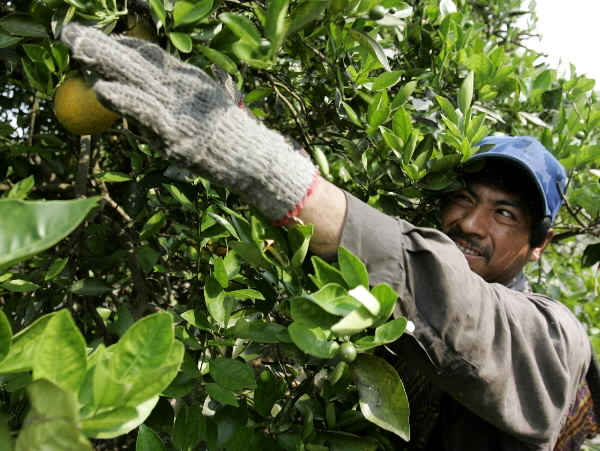Western Growers Back Romney, Immigration Reform

 Western Growers, a powerful trade association representing the interests of California and Arizona specialty crop farmers, recently endorsed Mitt Romney for president, saying he subscribes to the right kind of immigration reform. The first-ever presidential endorsement by the organization is also significant for its having come before the conclusion of the primary race. Clearly, fresh produce growers are anxious to send a message to national farm policy makers: corn, soy and wheat aren't the only crops that could use significant government support.
Western Growers, a powerful trade association representing the interests of California and Arizona specialty crop farmers, recently endorsed Mitt Romney for president, saying he subscribes to the right kind of immigration reform. The first-ever presidential endorsement by the organization is also significant for its having come before the conclusion of the primary race. Clearly, fresh produce growers are anxious to send a message to national farm policy makers: corn, soy and wheat aren't the only crops that could use significant government support.
“There are several very clear reasons why we have endorsed Governor Romney,” said Tom Nassif, Western Growers President and CEO in a recent news release. “These include his support of individual rights, less regulatory red tape and more balanced enforcement of government regulations and relief from the income, estate and capital gains tax burden that threatens successful, hard-working people and businesses. These principles will lead to job creation and economic growth.”
Although Romney took a very conservative approach to immigration reform early on in his campaign, the release continues, he has since listened to farmer concerns about the need for a practical guest worker program:
“The continued existence of a secure supply of domestically-produced fruits, vegetables and tree nuts depends upon a practical agriculture worker program. Governor Romney also knows that farmers require less federal regulation not more, and holds entrepreneurship and private enterprise in high regard, just as we do. We support these beliefs and commitments and support Mitt Romney for President of the United States.”
Western ag's nod to Gov. Romney isn't shocking, considering the presumptive Republican nominee announced an agriculture advisory board for his campaign back in March that is rather sympathetic to the specialty crop industry. As the San Francisco Chronicle puts it, Romney's farm policy advisers are a “decidedly non-corn bunch” with a bevy of players who tilt to California. The Golden State remains the largest and most diverse agricultural producer in the country, specializing in labor-intensive crops such as fresh fruits and vegetables which require hand harvesting. Nassif, a major voice in specialty crop policy, sits on Romney's advisory board.
Romney has said he wants to make the current system for employing seasonal agricultural workers more functional by streamlining the applications process. The former Governor of Massachusetts said that he would get rid of unnecessary requirements that delay the issuance of a visa and would work with Congress, states and employers to “properly” set the cap on non-agricultural temporary worker visas.
The threat of E-verify, an electronic database to determine the legal status of workers, and an improving Mexican economy have led to agricultural labor shortages across the country. Everywhere from California grape vineyards to Florida citrus groves, from Arizona leafy green fields to Georgia onion patches, seasonal labor isn't lining up like it used to. The labor-intensive nature of growing fresh produce requires teams of workers available at a precise time. Some producers, such as asparagus farmers in Washington State, are scaling back production after a dismal showing of migrant workers this last Spring.
As food prices inflate at an above average rate, an early Autumn round of labor shortages are bound to make immigration reform an election issue once again.


